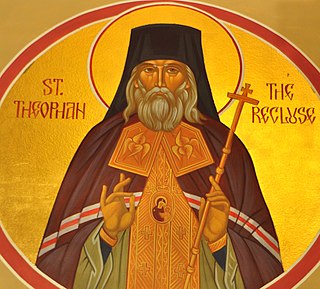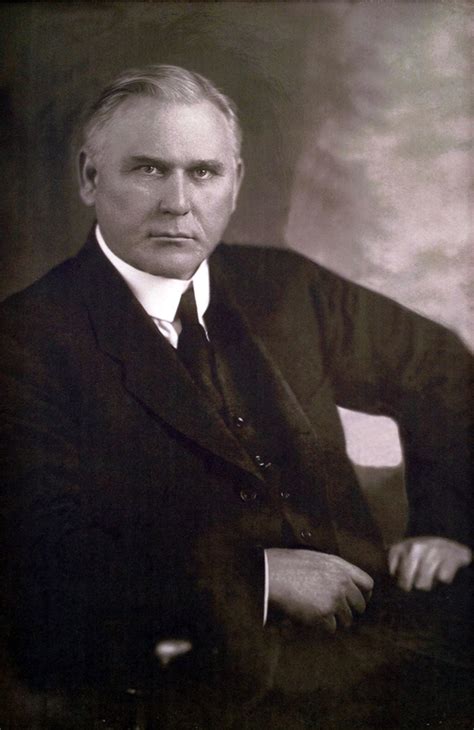A Quote by Oswald Chambers
Jesus Christ became Incarnate for one purpose, to make a way back to God that man might stand before Him as He was created to do, the friend and lover of God Himself.
Related Quotes
A Christian is one who recognizes Jesus as the Christ, the Son of the living God, as God manifested in the flesh, loving us and dying for our redemption; and who is so affected by a sense of the love of this incarnate God as to be constrained to make the will of Christ the rule of his obedience, and the glory of Christ the great end for which He lives.
Jesus Christ was God - the Personal God become man. He has manifested Himself many times in different forms and these alone are what you can worship. God in His absolute nature is not to be worshipped. Worshipping such God would be nonsense. We have to worship Jesus Christ, the human manifestation, as God. You cannot worship anything higher than the manifestation of God. The sooner you give up the worship of God separate from Christ, the better for you.
I find no fault in Him."...You can find fault in anyone else, but you can find
no fault in Jesus. Holy, harmless, undefiled, sinless: there He is! Christ is God's way to man; Christ is man's way to God. Christ is the true Jacob's ladder. By Him the penitent sinner, the believing soul, the redeemed child of God may come unto the Father and enter into the house of many mansions.
The gospel is saying that, what man cannot do in order to be accepted with God, this God Himself has done for us in the person of Jesus Christ. To be acceptable to God we must present to God a life of perfect and unceasing obedience to his will. The gospel declares that Jesus has done this for us. For God to be righteous he must deal with our sin. This also he has done for us in Jesus. The holy law of God was lived out perfectly for us by Christ, and its penalty was paid perfectly for us by Christ. The living and dying of Christ for us, and this alone is the basis of our acceptance with God
In the beginning, God created the earth, and he looked upon it in his cosmic loneliness. And God said, "Let Us make living creatures out of mud, so the mud can see what We have done." And God created every living creature that now moveth, and one was man. Mud as man alone could speak. God leaned close to mud as man sat, looked around, and spoke. "What is the purpose of all this?" he asked politely. "Everything must have a purpose?" asked God. "Certainly," said man. "Then I leave it to you to think of one for all this," said God. And He went away.
The Christian life is stamped by 'moral spontaneous originality,' consequently the disciple is open to the same charge that Jesus Christ was, viz., that of inconsistency. But Jesus Christ was always consistent to God, and the Christian must be consistent to the life of the Son of God in him, not consistent to hard and fast creeds. Men pour themselves into creeds, and God has to blast them out of their prejudices before they can become devoted to Jesus Christ.
If the divine Logos of God the Father became son of man and man so that He might make men gods and the sons of God, let us believe that we shall reach the realm where Christ Himself now is; for He is the head of the whole body (cf. Col. 1:18), and endued with our humanity has gone to the Father as forerunner on our behalf. God will stand 'in the midst of the congregation of gods' (Ps. 82:1 LXX) - that is, of those who are saved - distributing the rewards of that realm's blessedness to those found worthy to receive them, not separated from them by any space.
We trample the blood of the Son of God underfoot if we think we are forgiven because we are sorry for our sins. The only reason for the forgiveness of our sins by God, and the infinite depth of His promise to forget them, is the death of Jesus Christ...No matter who or what we are, God restores us to right standing with Himself only by means of the death of Jesus Christ...To identify with the death of Jesus Christ means that we must die to everything that was never a part of Him.
The man who knows God but does not know his own misery, becomes proud. The man who knows his own misery but does not know God, ends in despair...the knowledge of Jesus Christ constitutes the middle course because in him we find both God and our own misery. Jesus Christ is therefore a God whom we approach without pride, and before whom we humble ourselves without despair.
The marker of those who understand the gospel of Jesus Christ is that, when they stumble and fall, when they screw up, they run to God and not from him, because they clearly understand that their acceptance before God is not predicated upon their behavior but on the righteous life of Jesus Christ and his sacrificial death.




































